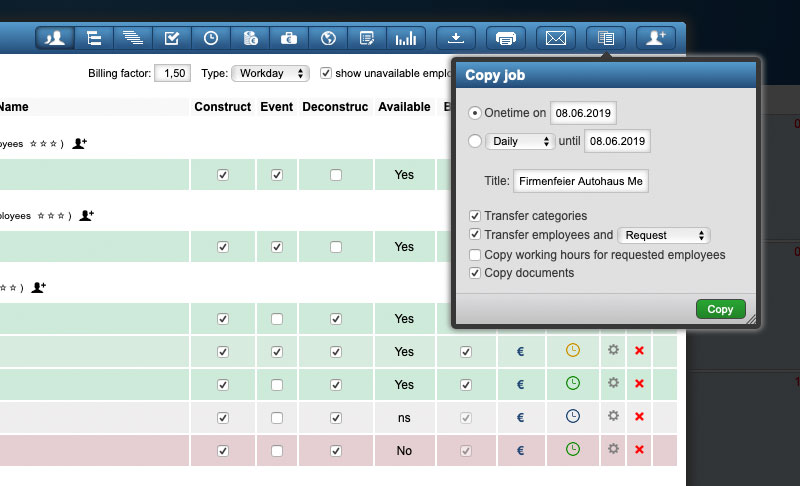Extended time tracking and much more
Dear customers,
in April, some of you already had the opportunity to get a small overview of the upcoming features of the GigPlaner. At the same time, we were given a number of great new ideas by you to make the GigPlaner even better suited to the needs of the event industry.
Therefore I am pleased to present you today the new version of the GigPlaner, which already contains some of your ideas besides the features shown in April. And of course we are still working on optimizing the GigPlaner and adding new ideas and features.
In the following I will introduce you to the most important changes in the system, which will be available to you as usual from tomorrow. Please note that some of the new functions must first be configured in the settings.
I hope you enjoy reading the update info and wish you continued success with the GigPlaner
Sven Schlotthauer
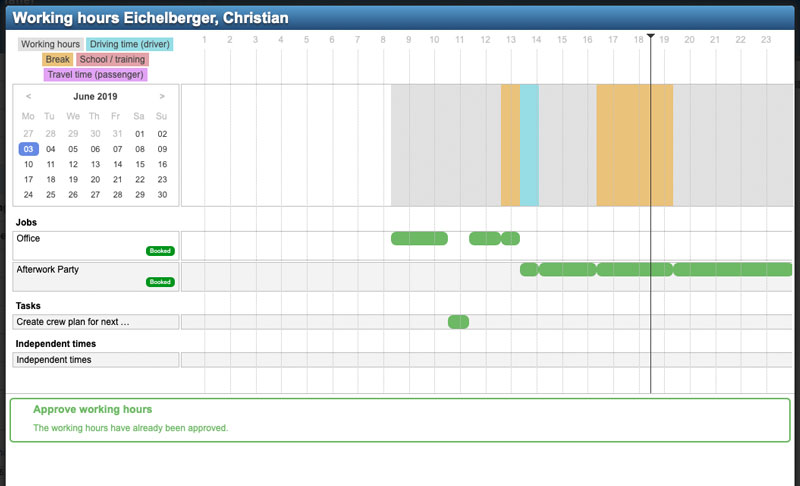
The recording of working hours is one of the most comprehensive functions in the GigPlaner and is becoming increasingly important for many of our customers. Since the ECJ ruling of 14 May at the latest, it is also foreseeable that digital time recording will become mandatory for all companies, regardless of their size and activity. In this version we therefore also offer some advancements for the time recording.
It is now possible to define categories for working times in the settings. In the future, employees will no longer have to stamp only a specific job, but also, for example, working time or travel time. For each category, it is then also possible to define the percentage of working time to be evaluated. For example, it is possible to define that only half of the working time is credited for travel time as a passenger.
With the new version, it is now also possible to record working times to tasks. Among other things, this makes it possible to record activities that are performed in advance independently of the actual job.
In order to make it easier to keep track of the wider range of booking options for working times in the future, we have created a new dialog for managing working times. This dialog can be called up both in Statements and in Time Recording via the "+" symbol above and offers the possibility of shifting or dividing working times to other jobs or tasks.
From this version, general working hours (e.g. from 8 a.m. to 4 p.m.) can be defined in the settings. If an employee stamps outside this general working hours, this working hour must be approved by an administrator. Within this general working hours, the working time is automatically considered approved.
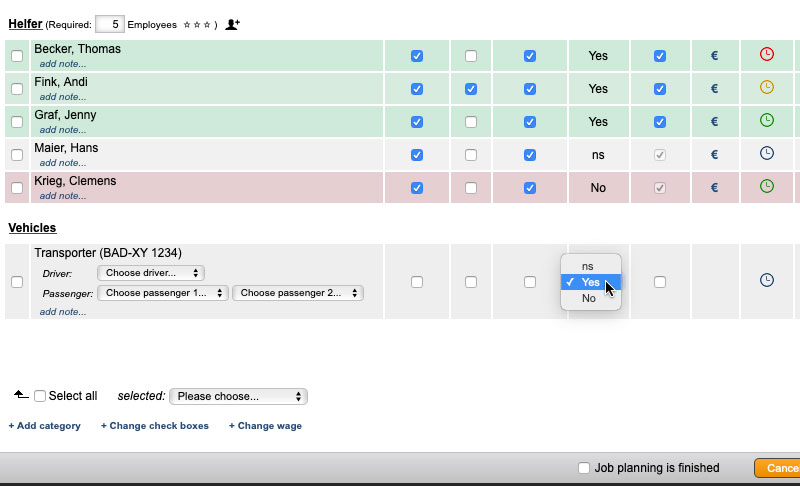
In this version, the vehicles only receive a small optimization, but for the next versions even larger extensions are planned, such as a recording of the driven kilometers and much more. From this version on it is already possible to request vehicles like you can already request employees, so that the status of a rental vehicle can be displayed better in the system.
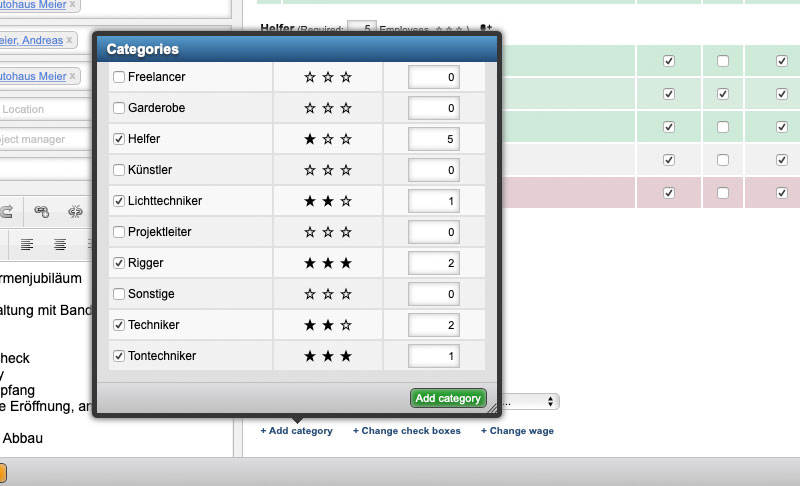
With the new version of GigPlaner you can already set the preferred skill level when you add the categories to your job while planning. In this way, a pre-selection can be made more quickly when employees are to be requested or booked later.
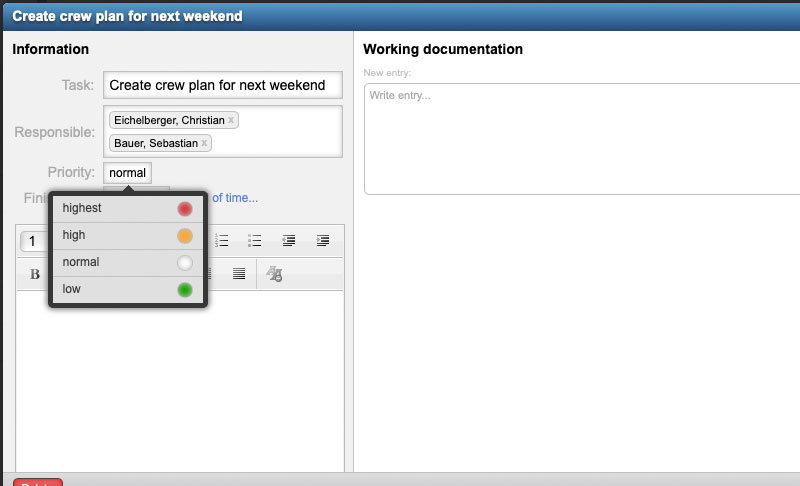
As already announced above, working hours can now be recorded for tasks. In addition, it is now possible to prioritize tasks and get a quicker overview of critical topics.
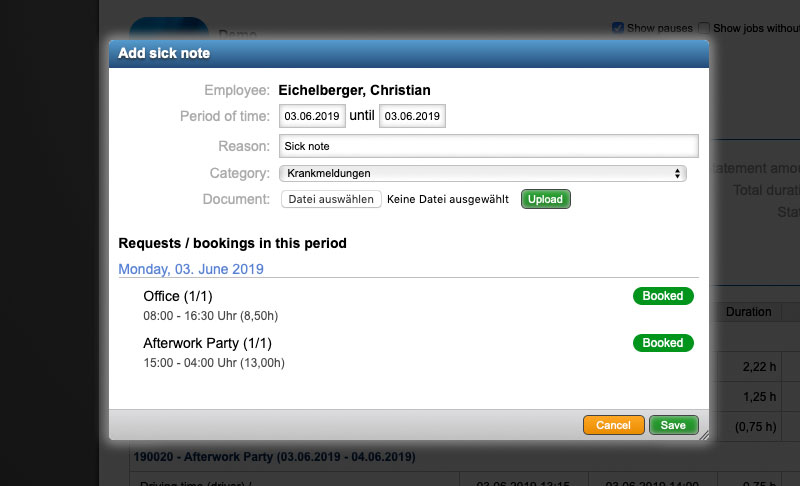
In the past, the recording of sick notes caused confusion from time to time, which is why we have already created the possibility with the last version to record sick notes directly via the holiday function (in the form of a separate category). Starting with this version, it is now also possible to store a document for each sick report so that you can also file the official sick note of your employees.
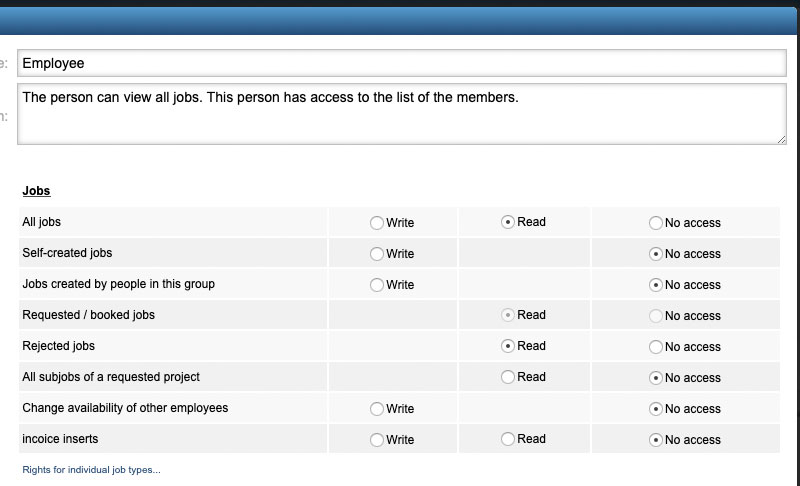
As in almost every new version there are some new rights again this time. The calendar views (day view, availability view, holiday view and planning view) can now be assigned individually to the user groups. Also the access to the invoice inserts in the jobs is definable by right. Whether administrators can change the availability of employees was previously only system-wide controllable, from now on this right can also be assigned to individual groups. Finally, there is the option of regulating access to all subjobs of projects for employees who are only allowed to see jobs in which they are requested.
